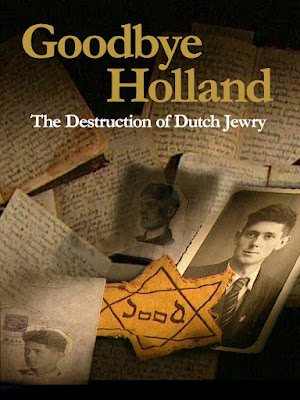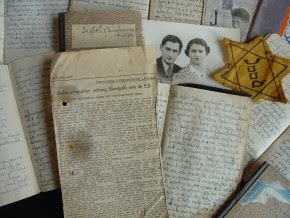In the Netherlands: Over the past few weeks, Abq Jew has become fixated on the travails of Dutch Jews during World War II.
On Sunday, April 16, Shulamit Reinharz will present her stories of Hiding During the Holocaust (the title of her new book), as part of the Santa Fe Distinguished Lecture Series. Wikipedia tells us -
Shulamit Reinharz (born 1946) was the Jacob Potofsky Professor of Sociology at Brandeis University until 2017. During her tenure at Brandeis, she was director of the women's studies program from 1991 to 2001 and launched The Scholars Program, the first graduate program to focus on Jewish women. She was the founding director of the Hadassah-Brandeis Institute in 1997 and founder and director of the Women's Studies Research Center in 2001.
And then, her story -
Shulamit Tirzah "Shula"Rothschild was born in 1946 in Amsterdam, the Netherlands. Rothschild's family were of German-Jewish heritage and as teenagers her parents became involved in the Socialist-Zionist youth movement known as Habonim to learn the agricultural skills which might be needed for life on a kibbutz.
During World War II both of Rothschild's parents' families were scattered. Her father's sisters were rescued through the Kindertransport program, which sent them to England, and his parents, fled to Malden, Massachusetts.
Her mother's parents were transported from Germany to the Gurs concentration camp near Pau, France. Rothschild's maternal grandfather died from starvation in Gurs before her maternal grandmother was sent to Auschwitz and exterminated. Two maternal aunts managed to escape to Palestine and survived The Holocaust.
After Kristallnacht and [her father's] detention in Buchenwald, Rothschild's parents fled their homeland with the help of Habonim, which secured [his] release. Hoping to pass through Holland and make aliyah to Eretz Yisrael, they were unable to leave the country because of the limits on immigration imposed by the British White Paper of 1939.
When the Nazis invaded in [May] 1940, the couple were forced into hiding.
Thirteen months after the war ended, Rothschild was born and when she was one year old, her family migrated to the United States to join her paternal grandparents in Massachusetts.
Part of Abq Jew's fixation on the Dutch story is due to his family connection: the stories not told by Abq Jew's mechutan (his son's father-in-law), but told by other members of the family and by straightforward historical sources.
But a major part of Abq Jew's fixation is due to the overwhelming tragedy. As Nina Siegal shared in The Diary Keepers, when she attended an art exhibition in Amsterdam's Jewish Cultural Quarter -
One fact shared in the exhibition's wall text shook me to my core: of the estimated 140,000 Dutch Jews, only about 35,000 survived World War II. Some 102,000, along with hundreds of Roma and Sinti people, had died in the Holocaust.
Could that be right? That would mean that about 75 percent of the Dutch Jewish population was murdered in five years.
In a single generation, the Nazis had managed to wipe out four centuries of Jewish tradition and culture in this city, in this Western European country? No wonder I felt that I was walking around in a void.
She continues:
Although this won't come as news to most Dutch people, I found it surprising at the time because I'd always thought that Eastern European Jews had suffered the worst. The Dutch death toll was, I learned, extraordinarily high by Western European standards.
In France, 25 percent of Jews were killed during the Holocaust; about 40 percent of Jews from Belgium were murdered. The Netherlands holds the dubious distinction of having the lowest survival rate of all the Western European countries.
In Eastern Europe, too, only a few countries fared worse, such as Poland, where 90 percent of the Jewish population, three million people, were wiped out. Hungary lost 60 percent of its Jewish population - and I'd always thought that was one of the hardest-hit countries.
Goodbye Holland is a 2004 documentary about the extermination of Dutch Jews during World War II.
The film debunks the accepted notion that the Dutch were 'good' during the war, exposing how Dutch police and civil servants helped the Nazis implement massive deportations, which resulted in the death of 78 percent of the Jews in the Netherlands.








No comments:
Post a Comment